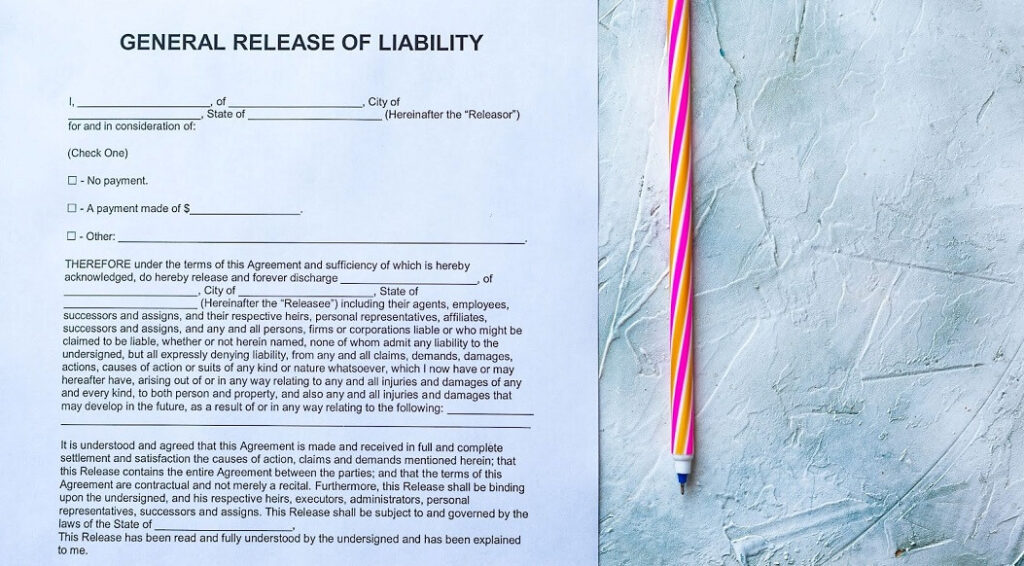In many personal injury settlement agreements, the defendant (the at-fault party) will ask that you sign a release or that a release is included within the agreement–sometimes it might be hidden within the pages of confusing text.

An Americus personal injury lawyer with Shrable Law Firm will use their experience to answer any questions you might have about your lawsuit. We provide tenacious representation to help our clients obtain full and fair compensation. Give us a call at (229) 349-6291 or contact us online for a free consultation.
Continue reading to learn more about the different types of releases in settlements and why signing a release could be a huge mistake.
What is a “release of all claims” and why is it important?
There are two kinds of release forms in Georgia: one is a general release, and the other is a limited liability release.
If you sign a general release, it means that you’re absolving the defendant of all responsibilities and you’re forfeiting your rights to ever sue that defendant for anything related to the accident. After signing the general release, the case is over.
If you sign a limited liability release, you’re agreeing that you won’t pursue the defendant’s personal assets. However, you’re reserving the right to pursue additional insurance compensation that might be available such as through your own insurer. This is typically used when the defendant’s insurance policy doesn’t cover a victim’s losses such as when someone is in a car accident with an underinsured driver.
You should only sign a release after you’ve been advised to sign by your attorney, especially if you have any uncertainty or questions regarding the release. An experienced lawyer can provide you the guidance you need to be sure you’re making an informed decision.
What’s included on the form?
We’re going to concentrate on the contents of the typical general release form, since it’s the one that’s used most often and applies to a majority of personal injury cases. The contents of the release can vary, but it usually includes the following:
- A statement agreeing that you won’t obtain any further payments associated with the accident or the injuries you suffered due to the accident.
- You will give up your right to take any further legal action against the defendant or their insurer.
- Neither the plaintiff nor the defendant admit fault.
- There could also be a non-disclosure element that will prevent both parties from discussing or disclosing any details of the settlement.
Initial settlements will almost always be less than you need
Remember, insurance companies care about profits more than they care about your well-being and financial security. The settlement offers you receive from them, especially the initial offers, are unlikely to be enough to cover your current and anticipated future medical bills or your other financial losses.
If it doesn’t, you’ll be responsible for paying for whatever expenses are in excess of the settlement amount.
Talk to an attorney before signing anything
Please don’t sign any release forms without consulting with an experienced Americus personal injury lawyer. To schedule your free consultation with a member of The Shrable Law Firm, P.C., contact us online or call (229) 349-6291.
Free Case Review
Contact Page form
Wrongful Death Claim
$750,000
More FAQ'S
Albany Office Address
Address : 127 N. Westover Blvd. Ste 3 Albany,
GA 31707
Phone: (229)-349-6291


